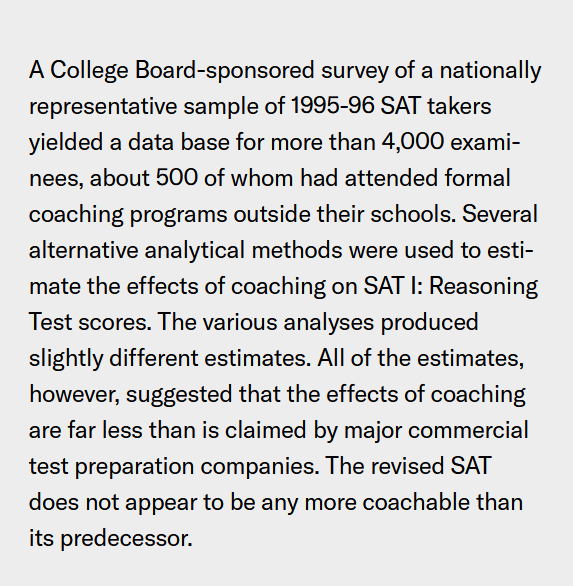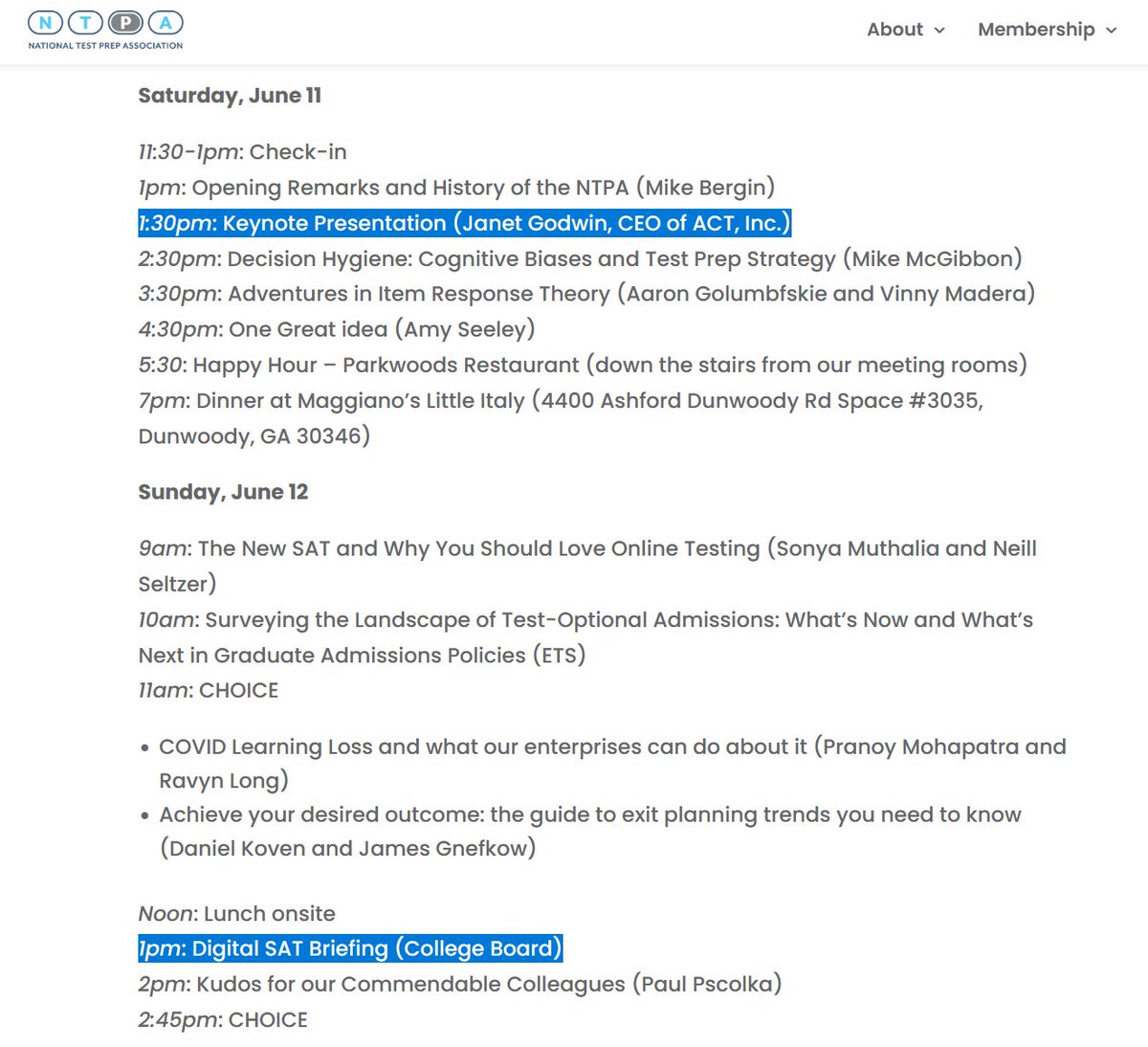
Thread: College Board, which has a history of blowing it, has blown it.
You know about the Parkland email. You know they told kids to sit in a McDonald's parking lot during COVID to take AP. You know about millions in bonuses during COVID, when revenue dropped $400M.
You know about the Parkland email. You know they told kids to sit in a McDonald's parking lot during COVID to take AP. You know about millions in bonuses during COVID, when revenue dropped $400M.
You know about taking out ads disguised as journalism. You know about their Communications staff working on a book of "research" about the SAT. You know about the disastrous launch of the redesigned SAT.
And now you know about AP African-American Studies.
And now you know about AP African-American Studies.
How did they blow it? Well, caving to pressure from a governor in Florida. The optics are bad enough: That education has been politicized by someone who wants to fan the flames of racism, fear, and hatred for political gain.
It's even worse when you suspect that caving was done to protect the cozy relationship College Board has with Florida, a state very fond of the SAT (even requiring it in public institutions during COVID), and it's third largest customer.
Look at Florida presidential election results. Here is 2016. Votes are shown by the percentage of county residents with a bachelor's or higher. Florida is red, but the more highly educated counties are more blue. 

College Board is appeasing people who have the lowest affinity for College Board, in all probability. And whatever they gain from this with them is likely a) short-lived, and b) accompanied by ridicule.
And they're offending people whose kids are likely to use CB products.
And they're offending people whose kids are likely to use CB products.
It is, perhaps, the worst double-whammy one could conceive. In the process, they've ticked off lots of people in other states who might resent a modern Napoleon-from-Florida-with-a-bigger-ego dictating their kids' educations.
And, of course, now that CB has caved, will other red states be far behind?
No, they will not be. Sarah Huckabee Sanders and Greg Abbott now know they are the College Board's daddy.
No, they will not be. Sarah Huckabee Sanders and Greg Abbott now know they are the College Board's daddy.
They could have even won me over (for a day or two, but let's start small, here) by telling Ron DeSantis to %&*$ off, in public, and in no uncertain terms.
They didn't. And they won't.
They didn't. And they won't.
I'm reminded of the punchline to the (probably apocryphal) story about Winston Churchill (you can look up the joke...I don't want to get banned from Twitter.)
"We are now just haggling over the price."
"We are now just haggling over the price."
So, there you have it. College Board blew it.
Again. History repeats itself.
Again. History repeats itself.
Oh, and #EMTalk
• • •
Missing some Tweet in this thread? You can try to
force a refresh











